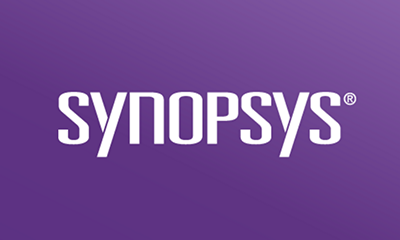Subscribe
Whether you’re building software to run your business or selling software to other businesses, you’re relying on technologies like cloud computing, continuous integration/continuous deployment (CI/CD), microservices, and APIs to enable speed and agility in application development. These same technologies can limit security visibility and control, making it harder for developers to build secure software at speed. Businesses like yours need simple, scalable, and flexible security solutions that help them take action when and where it’s needed most.
Polaris Software Integrity Platform® is an enterprise solution that simplifies application security testing (AST). But for any AST solution to be effective, you must make sure your developers get the risk information they need to secure their projects. Polaris integrates seamlessly into your development environment to identify security events and deliver risk insight and remediation guidance as soon as an issue is detected. Polaris has integrations for your source code managers (SCM), continuous integration (CI) pipelines, and issue trackers to provide closed-loop security risk awareness for source code, open source, and application behavior. Polaris integrations work with the tools you already have, so your developers can operate with the speed, accuracy, and agility they need, while securing the software that runs your business.
Polaris is optimized for DevSecOps
As an integrated cloud-based application security testing solution, Polaris is optimized for the needs of development and DevSecOps teams. Polaris integrations make it easy to instill security into DevOps in minutes, so developers can see results within their standard workflows, and security teams can track and manage application security testing activities and risks across thousands of applications.
Organizations rely on integration across DevOps workflows and CI/CD pipelines to automate and accelerate application security scanning throughout the software development life cycle (SDLC). Integrations help to ensure that code changes are tested, built, and deployed quickly and reliably. Studies show that the average organization today is already using up to 45 security tools. Therefore, you don’t need another tool to replace them, you need a platform to help you manage them. Polaris integration support means you get security layered on top of your existing tools, processes, and software, which enables your developers to work more efficiently and deliver software faster and with higher quality.
We all know that getting developers to adopt new tools and platforms can be a challenge. Developers are asked to work at velocity, and most have customized their IDEs and workflows to suit their specific needs. With Polaris integrations, your developers can enable the tools, systems, and processes they already have to automate and simplify testing, building, and deploying code changes. This means they can add the best-in-class static application security testing (SAST) and software composition analysis (SCA) scanning and security activities of Polaris without slowing down development and DevOps workflows.
Polaris meets developers where they are
Polaris currently offers integration capabilities for
- Source code management. Polaris seamlessly integrates with the SCM tools your developers are already using, whether that’s GitHub, GitLab, or other common SCM repositories. This enables developers to build security scanning and testing right into their pull request process. Every time developers pull a code branch to make changes, even when doing code fixes, there is a risk that they will introduce security vulnerabilities. Your SCM is where you store all the original assets you use to build and evolve every project you work on. An issue in one component or library in your SCM can proliferate out across your entire portfolio. Polaris allows you to scan at the source with each pull request or code change, and it notifies you of new risks as they emerge.
- Continuous integration pipelines. Integration and automation are the defining characteristics of modern software development. Systems for continuous integration automate the procedures for building, testing, packaging, and deploying software. If developer tools don't seamlessly integrate into their CI pipelines, teams may miss deadlines or be compelled to skip tests to maintain their schedules. Adding Polaris to your SDLC means your developers can check their code for security vulnerabilities at any stage. With Polaris, developers have access to scanning technology that folds seamlessly into their branching workflows, and security teams can build gates into the pull request process itself. This moves security left in the SDLC without slowing down your developers, or the workflows they’re used to.
- Actionable remediation. Polaris helps you scan for vulnerabilities as you are creating and revising code, and it includes actionable remediation help via integrations with Jira and other ticketing tools. Polaris allows you to take immediate and effective action based on risk prioritization and triage, proliferating that insight through your ticketing systems. For example, you can create policies that notify teams or "break the build" when high-severity vulnerabilities are found, and Polaris can ensure that those risks don't persist downstream or get pushed into production. Additionally, the Polaris and Jira integration makes it simple to assign bugs to developers for remediation.
What Polaris can do for you
As a cloud-based, integrated tool for application security testing, Polaris is designed to meet the needs of both DevOps and security teams. The best way to learn more about Polaris is to see it for yourself.









